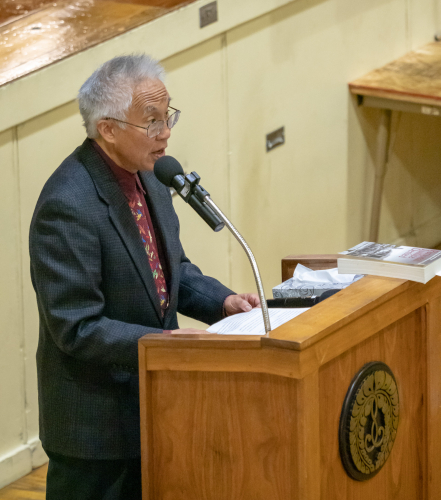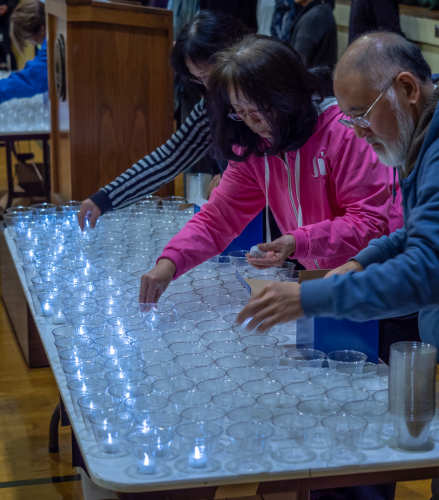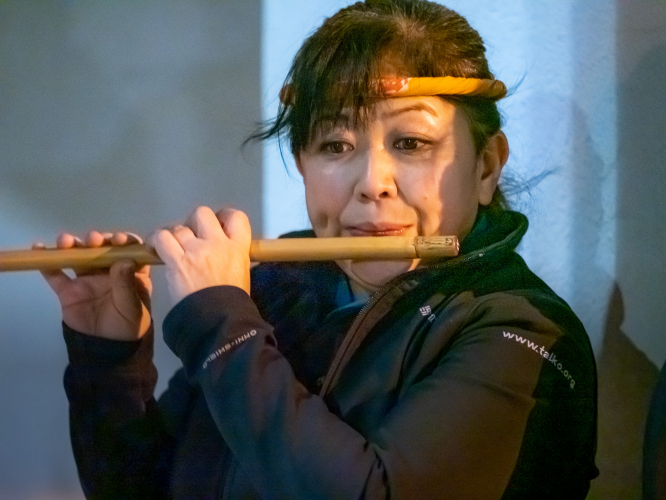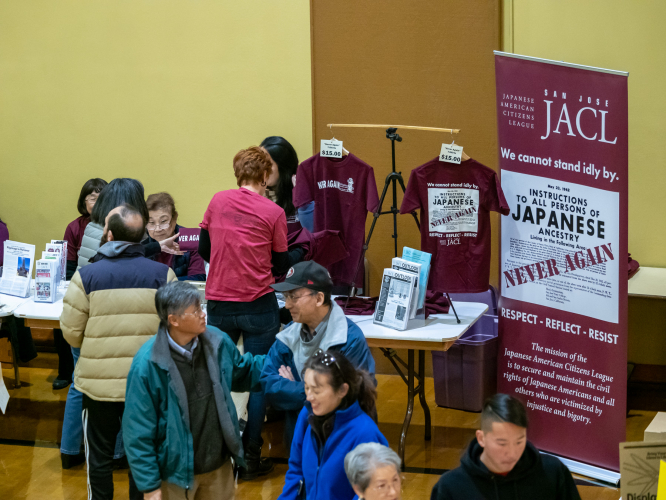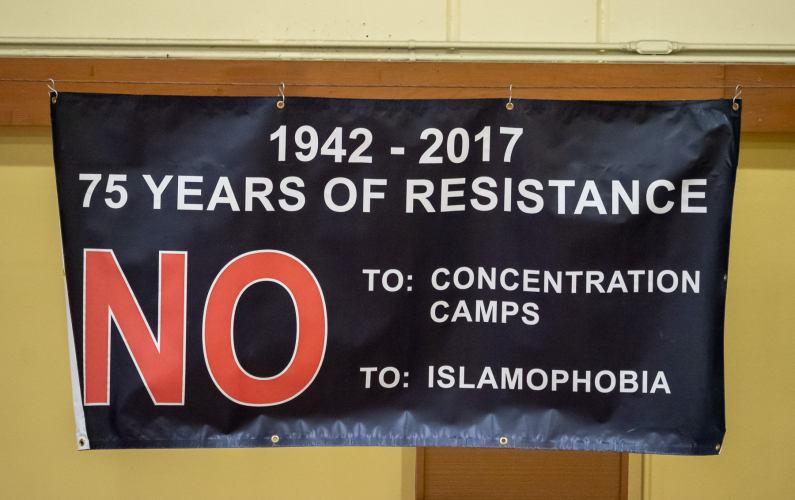From the Open-Publishing Calendar
From the Open-Publishing Newswire
Indybay Feature
Japanese Americans, Allies Say “Never Again is Now”
On February 17th, members of the greater San José Japanese American community commemorated the anniversary of Executive Order 9066, which led to the incarceration of 120,000 Americans of Japanese descent during World War II. At the same time they protested the National Emergency Trump announced two days earlier in order to build his wall on the Mexico-U.S. border. Allies from the South Bay peace activist community joined with those gathered in the local Japantown, one of only three left in the United States.
Jack Owicki, Pro-Bono Photo. Please credit the photographer if you use these photos.
Jack Owicki, Pro-Bono Photo. Please credit the photographer if you use these photos.
It was full house in the San José Buddhist Church gym where over 400 people listened to speakers including Masao Suzuki, professor at Skyline College. Suzuki spoke of the similarities of immigrants from Japan starting in the late 1800’s and Central American refugees today. He said the World War II concentration camps were created in a climate of race prejudice and a failure of political leadership, the same situation we find ourselves in now. He added that, “The yellow peril of a hundred or more years ago has been replaced by a ‘brown peril’ today.”
Teresa Castellanos, who is the coordinator of Santa Clara County’s Immigrant Relations and Integration services, said that Japanese Americans have a keen understanding of the plight of immigrants today because of the experience of incarceration, until recently euphemistically referred to as "internment", during WW II.
A candle-lighting ceremony preceded a march in the surrounding neighborhood with its backdrop of historic buildings. Nihonmachi, Japantown, is located just a few blocks north of downtown San José. It was founded around 1890, when Japanese immigrants came to the Santa Clara Valley to do farm work, as a place providing comfort and safety from prevailing anti-Asian racism.
Teresa Castellanos, who is the coordinator of Santa Clara County’s Immigrant Relations and Integration services, said that Japanese Americans have a keen understanding of the plight of immigrants today because of the experience of incarceration, until recently euphemistically referred to as "internment", during WW II.
A candle-lighting ceremony preceded a march in the surrounding neighborhood with its backdrop of historic buildings. Nihonmachi, Japantown, is located just a few blocks north of downtown San José. It was founded around 1890, when Japanese immigrants came to the Santa Clara Valley to do farm work, as a place providing comfort and safety from prevailing anti-Asian racism.
Add Your Comments
We are 100% volunteer and depend on your participation to sustain our efforts!
Get Involved
If you'd like to help with maintaining or developing the website, contact us.
Publish
Publish your stories and upcoming events on Indybay.
Topics
More
Search Indybay's Archives
Advanced Search
►
▼
IMC Network





